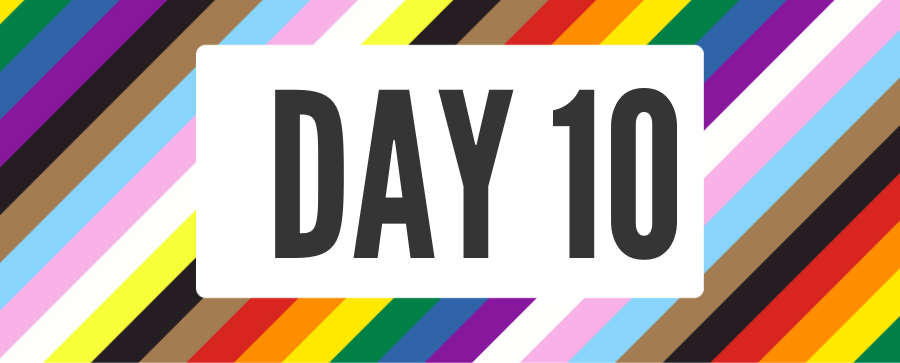
Allyship and Advocacy
The word ally is growing in awareness and recognition. An ally is someone who does not belong to a particular oppressed group, but works to advocate with/for and support that group in the biggest and smallest ways. An LGBTQIA+ ally can be a straight/heterosexual friend who advocates for gay rights, an allosexual family members who supports his asexual siblings, or a cisgender coworker who speaks up with/for her transgender colleagues. Allies aren’t an identity as much as an active role or responsibility an individual chooses to take on. Being an ally goes beyond not causing harm but instead acts intentionally to prevent harm, repair harm, and educate others to do the same.
As you continue to engage with the content in our LGBTQIA+ Equity Challenge, we challenge you to think about how you can use your influence to be an ally. Can you invite a friend, family member, or co-worker to join you in learning, discussing, and deepening your understanding of the LGBTQIA+ community? How can you share or apply what you’re learning to make the spaces you’re in more inclusive of all LGBTQIA+ people?
TODAY’S CHALLENGE
Read:
- Francisco Pallares-Santiago, 6 Ways to Respectfully Be a Better LGBTQ Ally, Oprah Daily (June 27, 2019). [7 minute read]
Watch:
- 5 Tips for Being An Ally, Franchesca Ramsey, (November 22, 2014). [3 minute video]
- PFLAG Proud Parent, OREO Cookie (October 9, 2020). [3 minute video]
- She, a tale by J&B, J&B (December 7, 2022). [3 minute video]
- It starts with your name, Starbucks (May 13, 2023). [3 minute video]
Discuss:
- In the “Get Comfortable with Being Uncomfortable” section of the Oprah Daily article, the author advises that if an ally messes up, they should not center their own feelings of discomfort. Sometimes in our own embarrassment, guilt, or shame, we focus our energy convincing the person we’ve harmed that we’re good people. This might sound like, “I have so many gay friends, my brother is gay and I love him, I swear I never say things like that, oh my goodness.”
- Think about a time when someone apologized to you and it was really meaningful and well-received. What happened? What made it meaningful?
- What might the impact be on the person harmed if we center our own experiences or discomfort? Is that different from the apology you thought of above?
- What feelings show up for you when you make a mistake? What tools do you have that can help you pause and refocus on addressing the harm (deep breath, body stretch, etc)?
- When have you felt heard and/or supported by someone in your life? What happened? Are there ways you can do this for LGBTQIA+ people in your life?
- What are 1-2 actions you can take to support an LGBTQIA+ person in your life? This can be a shift in your language, sharing what you’ve learned, or advocating for institutional change. All of it matters.
